There is a marked difference between current post-synodal outcomes compared to the pontificate of St. John Paul II, whose memorial we commemorate today. It was this great Saint, who scanning the horizon of humanity in 1976, declared prophetically over the Church:
We are now facing the final confrontation between the Church and the anti-Church, of the Gospel versus the anti-Gospel, of Christ versus the anti-Christ… It is a trial… of 2,000 years of culture and Christian civilization, with all of its consequences for human dignity, individual rights, human rights and the rights of nations. —Cardinal Karol Wojtyla (JOHN PAUL II ), at the Eucharistic Congress, Philadelphia, PA; August 13, 1976; cf. Catholic Online (the words above were confirmed by Deacon Keith Fournier who was in attendance that day.)
And so it is: today we are witnessing the emergence of a false gospel, propagated no less by bishops and cardinals who are openly contradicting Catholic teaching.[1]eg. here and here Behind their sophistries is an Anti-Mercy — a false compassion that excuses and even celebrates sin under the false virtues of “tolerance” and “inclusivity.” On the contrary, the authentic Gospel is called “good news” precisely because it does not leave us in the chains of sin but provides a means to become a new creation in Christ: one who is freed from the powers of darkness, the passions of the flesh, and the damnation of Hell. In return, the soul who repents from sin is infused with sanctifying grace, is filled with the Holy Spirit, and empowered to share in the Divine Nature. As we heard St. Paul proclaim in this past Monday’s first Mass reading:
All of us once lived among them in the desires of our flesh, following the wishes of the flesh and the impulses, and we were by nature children of wrath, like the rest. But God, who is rich in mercy, because of the great love He had for us, even when we were dead in our transgressions, brought us to life with Christ (by grace you have been saved), raised us up with Him, and seated us with Him in the heavens in Christ Jesus… (cf. Eph 2:1-10)
In a Post-synodal Apostolic Exhortation, St. John Paul II once again affirmed 2000 years of Tradition and the clear teachings of Sacred Scripture of the need for conversion and repentance — ie. “self-knowledge” — in order that we would not be deceived, thereby condemning ourselves:[2]cf. 2 Thess 2:10-11
In the words of St. John the apostle, “If we say we have no sin, we deceive ourselves, and the truth is not in us. If we confess our sins, he is faithful and just and will forgive our sins.” Written at the very dawn of the Church, these inspired words introduce better than any other human expression the theme of sin, which is intimately connected with that of reconciliation. These words present the question of sin in its human dimension: sin as an integral part of the truth about man. But they immediately relate the human dimension to its divine dimension, where sin is countered by the truth of divine love, which is just, generous and faithful, and which reveals itself above all in forgiveness and redemption. Thus St. John also writes a little further on that “whatever accusations (our conscience) may raise against us, God is greater than our conscience.”
To acknowledge one’s sin, indeed-penetrating still more deeply into the consideration of one’s own personhood-to recognize oneself as being a sinner, capable of sin and inclined to commit sin, is the essential first step in returning to God. For example, this is the experience of David, who “having done what is evil in the eyes of the Lord” and having been rebuked by the prophet Nathan, exclaims: “For I know my transgressions, and my sin is ever before me. Against you, you alone, have I sinned and done what is evil in your sight.” Similarly, Jesus himself puts the following significant words on the lips and in the heart of the prodigal son: “Father, I have sinned against heaven and before you.”
oneself as being a sinner, capable of sin and inclined to commit sin, is the essential first step in returning to God. For example, this is the experience of David, who “having done what is evil in the eyes of the Lord” and having been rebuked by the prophet Nathan, exclaims: “For I know my transgressions, and my sin is ever before me. Against you, you alone, have I sinned and done what is evil in your sight.” Similarly, Jesus himself puts the following significant words on the lips and in the heart of the prodigal son: “Father, I have sinned against heaven and before you.”
In effect, to become reconciled with God presupposes and includes detaching oneself consciously and with determination from the sin into which one has fallen. It presupposes and includes, therefore, doing penance in the fullest sense of the term: repenting, showing this repentance, adopting a real attitude of repentance- which is the attitude of the person who starts out on the road of return to the Father. This is a general law and one which each individual must follow in his or her particular situation. For it is not possible to deal with sin and conversion only in abstract terms.
In the concrete circumstances of sinful humanity, in which there can be no conversion without the acknowledgment of one’s own sin, the Church’s ministry of reconciliation intervenes in each individual case with a precise penitential purpose. That is, the Church’s ministry intervenes in order to bring the person to the “knowledge of self”-in the words of St. Catherine of Siena — to the rejection of evil, to the re-establishment of friendship with God, to a new interior ordering, to a fresh ecclesial conversion. Indeed, even beyond the boundaries of the Church and the community of believers, the message and ministry of penance are addressed to all men and women, because all need conversion and reconciliation. —”Reconciliation and Penance”, n. 13; vatican.va
—Mark Mallett is the author of The Now Word, The Final Confrontation, and a co-founder of Countdown to the Kingdom
Related Reading
Political Correctness and the Great Apostasy
Compromise: The Great Apostasy

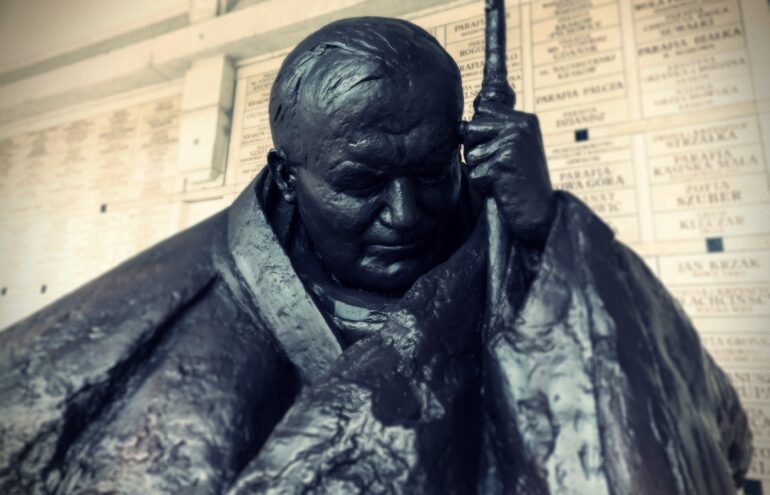

 Alicja Lenczewska
Alicja Lenczewska

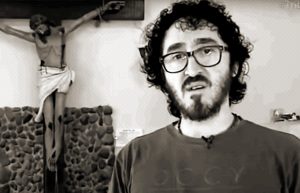

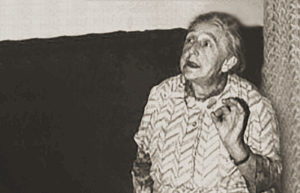 Elizabeth Kindelmann
Elizabeth Kindelmann Through what became The Spiritual Diary, Jesus and Mary taught Elizabeth, and they continue to instruct the faithful in the divine art of suffering for the salvation of souls. Tasks are assigned for each day of the week, which involve prayer, fasting, and night vigils, with beautiful promises attached to them, laced with special graces for priests and the souls in purgatory. In their messages, Jesus and Mary say that The Flame of Love of the Immaculate Heart of Mary is the greatest grace given to mankind since the Incarnation. And in the not-so-distant future, her flame will engulf the entire world.
Through what became The Spiritual Diary, Jesus and Mary taught Elizabeth, and they continue to instruct the faithful in the divine art of suffering for the salvation of souls. Tasks are assigned for each day of the week, which involve prayer, fasting, and night vigils, with beautiful promises attached to them, laced with special graces for priests and the souls in purgatory. In their messages, Jesus and Mary say that The Flame of Love of the Immaculate Heart of Mary is the greatest grace given to mankind since the Incarnation. And in the not-so-distant future, her flame will engulf the entire world. Father Stefano Gobbi
Father Stefano Gobbi Why Gisella Cardia?
Why Gisella Cardia? Thirdly, the messages have frequently been accompanied by visible phenomena, photographic evidence found in In Cammino con Maria, which cannot be the fruit of subjective imagination, notably the presence of the stigmata on Giselle’s body and and the appearance of crosses or religious texts in blood on Gisella’s arms. See the pictures taken from her apparition website
Thirdly, the messages have frequently been accompanied by visible phenomena, photographic evidence found in In Cammino con Maria, which cannot be the fruit of subjective imagination, notably the presence of the stigmata on Giselle’s body and and the appearance of crosses or religious texts in blood on Gisella’s arms. See the pictures taken from her apparition website 
 Jennifer
Jennifer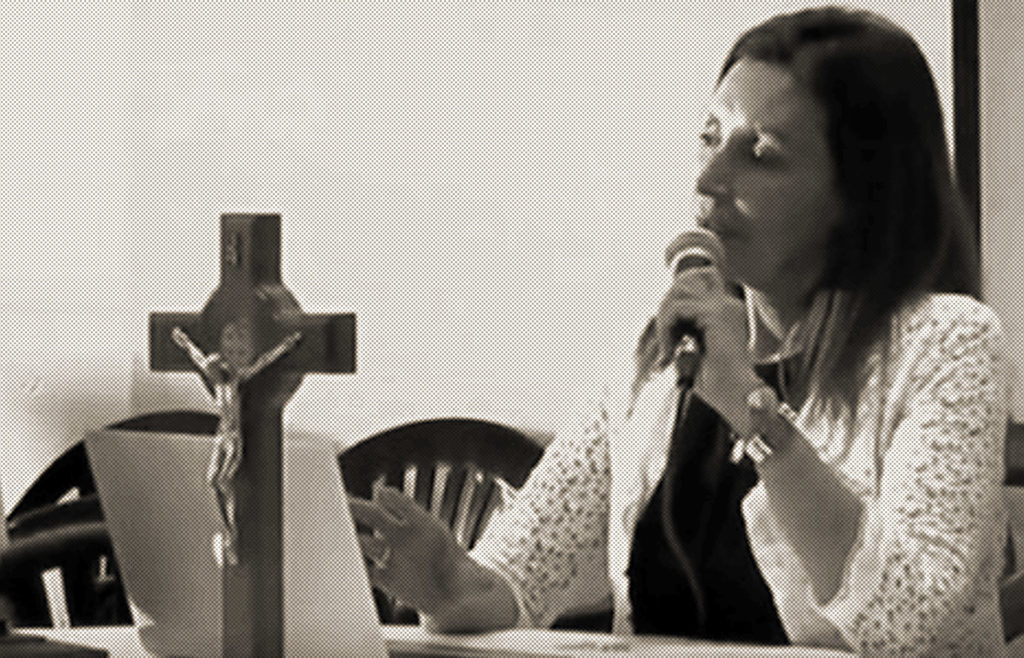
 Why Manuela Strack?
Why Manuela Strack?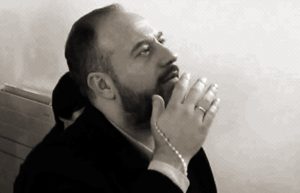

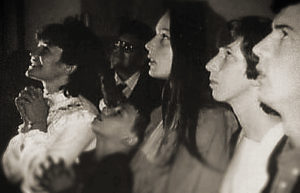 Why the Visionaries of Our Lady of Medjugorje?
Why the Visionaries of Our Lady of Medjugorje? Why Pedro Regis?
Why Pedro Regis?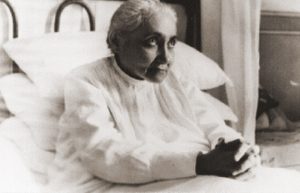 Why the Servant of God Luisa Piccarreta?
Why the Servant of God Luisa Piccarreta? of the saints. It wasn’t until she became a “Daughter of Mary” that the nightmares finally ceased at the age of eleven. In the following year, Jesus began to speak interiorly to her especially after receiving Holy Communion. When she was thirteen, He appeared to her in a vision that she witnessed from the balcony of her home. There, in the street below, she saw a crowd and armed soldiers leading three prisoners; she recognized Jesus as one of them. When He arrived beneath her balcony, He raised his head and cried out: “Soul, help Me!” Deeply moved, Luisa offered herself from that day on as a victim soul in expiation for the sins of mankind.
of the saints. It wasn’t until she became a “Daughter of Mary” that the nightmares finally ceased at the age of eleven. In the following year, Jesus began to speak interiorly to her especially after receiving Holy Communion. When she was thirteen, He appeared to her in a vision that she witnessed from the balcony of her home. There, in the street below, she saw a crowd and armed soldiers leading three prisoners; she recognized Jesus as one of them. When He arrived beneath her balcony, He raised his head and cried out: “Soul, help Me!” Deeply moved, Luisa offered herself from that day on as a victim soul in expiation for the sins of mankind. immobile, rigid-like state that appeared almost as if she were dead. It was only when a priest made the sign of the Cross over her body that Luisa regained her faculties. This remarkable mystical state persisted until her death in 1947—followed by a funeral that was no little affair. During that period in her life, she suffered no physical illness (until she succumbed to pneumonia at the end) and she never experienced bedsores, despite being confined to her little bed for sixty-four years.
immobile, rigid-like state that appeared almost as if she were dead. It was only when a priest made the sign of the Cross over her body that Luisa regained her faculties. This remarkable mystical state persisted until her death in 1947—followed by a funeral that was no little affair. During that period in her life, she suffered no physical illness (until she succumbed to pneumonia at the end) and she never experienced bedsores, despite being confined to her little bed for sixty-four years. Why Simona and Angela?
Why Simona and Angela?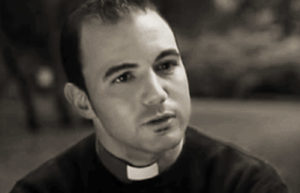
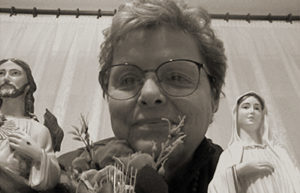 Valeria Copponi
Valeria Copponi